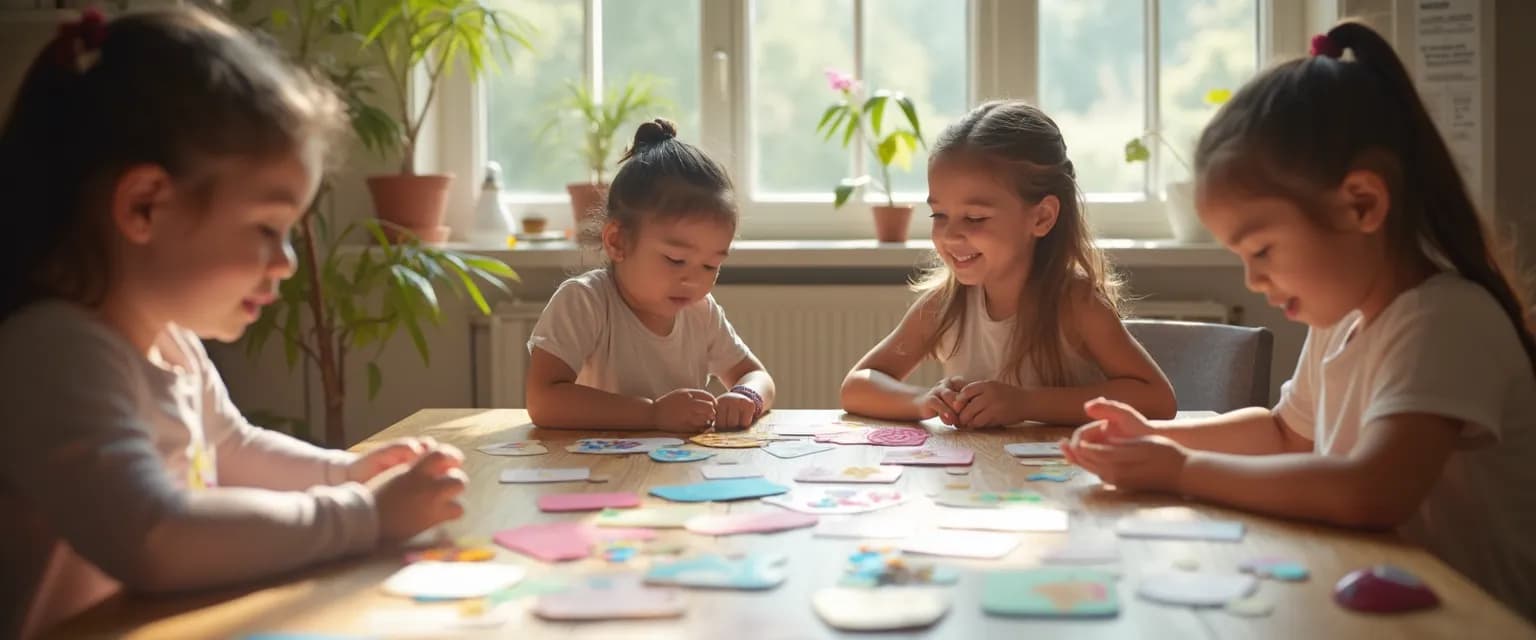7 Mindful Learning Games That Boost Memory Without Extra Study Time
Ever caught yourself re-reading the same paragraph three times because your mind wandered off? You're not alone. In our information-packed world, we're constantly learning—but rarely doing it mindfully. Mindful learning transforms how we absorb and retain information without demanding extra study time. It's about quality over quantity, engagement over repetition.
Think of mindful learning as the difference between gulping down coffee on your morning commute versus savoring each sip at your favorite café. When we approach learning with focused awareness, our brains create stronger neural connections, making information stick without the endless review sessions. These mindfulness techniques activate different parts of your brain simultaneously, turning passive reading into active memory-building.
Ready to transform your learning experience? These seven game-based approaches fit seamlessly into your existing routine, making learning feel less like work and more like play—while delivering serious results for your memory.
The Science Behind Mindful Learning Games
When learning feels like play, something magical happens in your brain. Game-based approaches trigger dopamine release—the brain's reward chemical—creating a state where memory formation thrives. This isn't just for kids; adults experience the same neurological benefits when they engage in playful learning.
Mindful learning works because it combines focused attention with emotional engagement. Research shows that information paired with positive emotions or novelty forms stronger memory traces. These games create multiple neural pathways to the same information, giving your brain several routes to retrieve what you've learned.
The science is clear: when we engage multiple senses and add an element of play, we bypass the need for rote memorization. Instead, learning becomes effortless because it aligns with how our brains naturally process and store information.
7 Playful Mindful Learning Games to Try Today
1. The Association Game
Connect new information to vivid, unusual mental images. Learning a foreign language? Imagine "la pluma" (Spanish for pen) as a giant feather writing in the sky. The weirder the association, the more memorable it becomes. Your brain loves novelty!
2. The 5-Minute Chunking Challenge
Break complex information into bite-sized chunks, then give yourself exactly five minutes to master each piece. This time constraint creates just enough pressure to heighten focus without causing stress. Perfect for tackling technical subjects or lengthy material.
3. The Sensory Memory Walk
Take a short walk while reviewing information, associating different facts with specific landmarks along your route. Later, mentally retrace your steps to recall the information. This technique leverages spatial memory, one of our strongest memory systems.
4. The Teach-Back Technique
Explain concepts aloud as if teaching an imaginary student. This forces you to translate information into your own words, instantly revealing gaps in understanding. It's like having a productivity coach in your head, challenging you to clarify your thinking.
5. The Memory Palace Method
Place information you need to remember in specific locations within a familiar space (like your home). To recall, take a mental walk through that space. This ancient technique has helped people memorize entire books!
6. The Rhythm and Rhyme Game
Set information to a simple beat or create a rhyme. Your brain processes rhythmic and rhyming information differently, creating additional memory pathways. This explains why we remember song lyrics better than prose.
7. The Curiosity Question Challenge
Transform facts into intriguing questions. Instead of memorizing "The heart pumps 2,000 gallons daily," ask "What organ works hard enough to move 2,000 gallons daily?" Questions naturally engage our problem-solving instincts.
Integrating Mindful Learning Into Your Daily Routine
The beauty of these mindful learning games is their flexibility. Try the Association Game during your commute, the Teach-Back Technique while showering, or the Curiosity Question Challenge while waiting in line. The key is consistency—even five minutes daily builds powerful learning habits over time.
Start small by choosing just one technique that resonates with you. As it becomes second nature, add another. Soon, mindful learning becomes your default approach to new information.
Remember, these aren't just memory tricks—they're ways to transform your relationship with learning itself. By embracing these playful approaches to mindful learning, you'll discover that meaningful knowledge acquisition doesn't require marathon study sessions—just a willingness to engage your brain in more creative, attentive ways.




